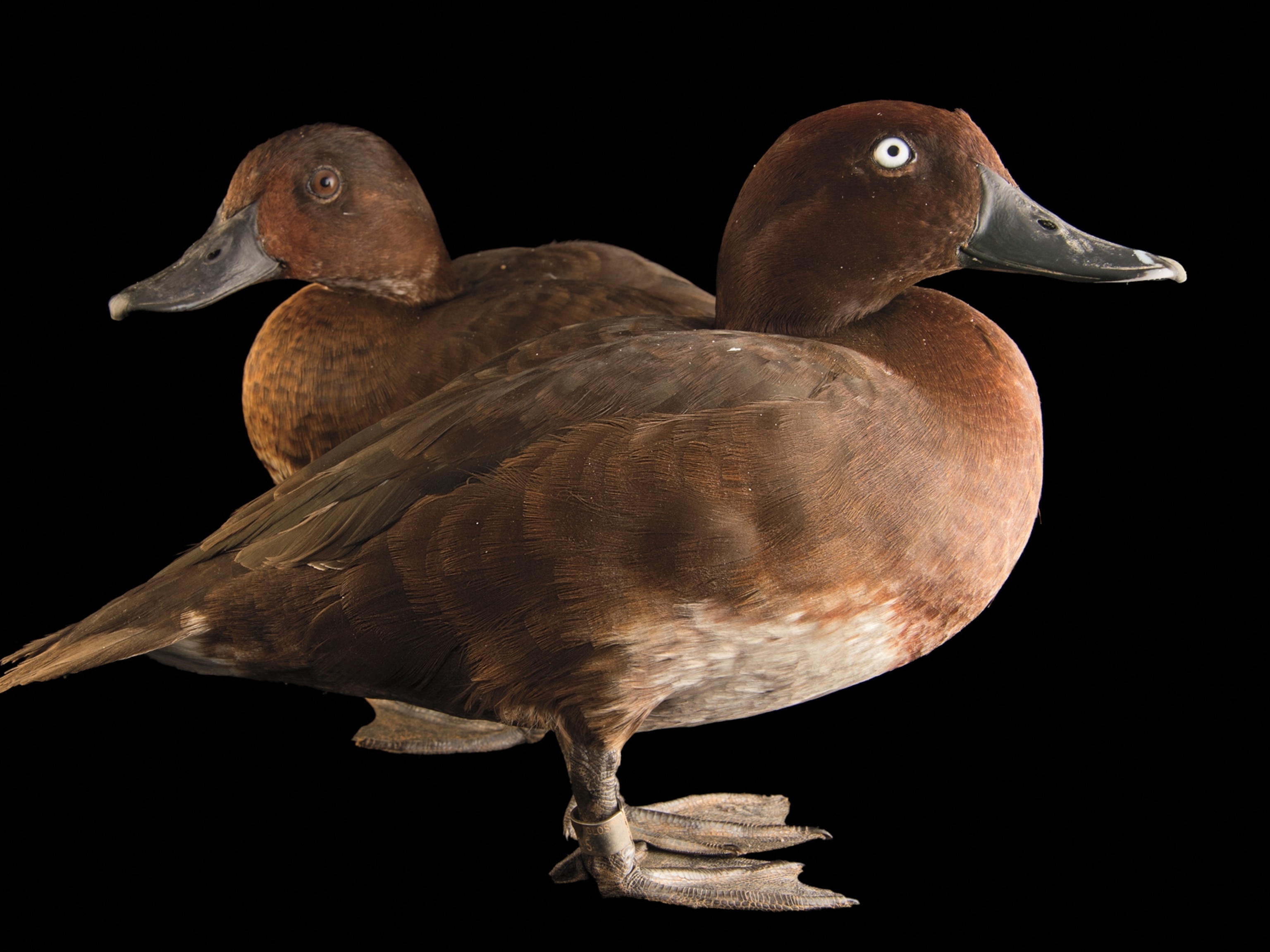
Beyond Testicles and Dads: 5 Legit Studies of Male "Gear"
Researchers have often examined male genitalia, from ducks to dudes.
At first blush, the oddest thing about a study out this week that linked being a good dad to smaller-than-average testicle size might be that such research happened in the first place.
The study found that men with smaller testicles showed more "nurturing-related" brain activity when shown images of their own children. Other dads looked more like cads.
Surprising perhaps, but scholars have often turned their attention to the mysteries of the male half of the species, from studies of drakes to dudes. Reproduction is where evolution makes its mark, after all, and for that you need the right equipment.
That makes the look down the shorts of 70 Atlanta men, reported Monday in the Proceedings of the National Academies of Science, only the latest in a long line of such studies. Consider some of the recent profound results of studies scrutinizing the pride of the male animal:
(Bigger Testes Can Offer a Competitive Edge)
1. Size indeed matters, at least for Aussies, suggested an international team in April. The researchers asked hundreds of Australian women to scrutinize cutouts of masculine body shapes. Overall, the women rated the well-endowed shapes higher in terms of "male attractiveness," with bigger endowments mattering almost as much as height.
2. Size matters for only a few types of birds, however, revealed a June Current Biology report looking at avian evolution. "One of the most puzzling events in evolution is the reduction and loss of the phallus in birds," the biologist authors noted, explaining their effort.
It turns out that 97 percent of birds possess a version of a gene called Bmp4, which causes cell death in the genitalia of chickens and most other birds. Ducks and emus lack this version of the gene, however, and as a result some have rather outsized equipment.
3. Evolution seems to have deleted the genes responsible for the penile "spines" seen in chimps from the human genome, a 2011 Nature study showed. The same deletion of genes also lost humans the tactile whiskers seen on the face of apes as well. So, good news all around. (Related: "Why Human Penises Lost Their Spines.")
4. Men who are concerned about the parenting implications of this week's PNAS study might be reassured to learn about a 2012 Journal of Urology study of 116 Houston men. In that instance, researchers found there wasn't a connection between smaller-than-normal testicle size and testosterone levels or penis size in the men. On the downside, the study did find a connection between hormone levels and the anatomy of their backsides.
5. Duck penis studies seem to interest the politically minded. U.S. politics watchdog Politifact took it upon itself in March to determine whether Yale ornithologists had indeed received $400,000 in federal research money to investigate the curiously long, corkscrewed genitalia of ducks, after the Twitterverse challenged the grant's proprietary.
After some hard-core reporting that involved talking to the researchers, Politifact rated the allegation that federal funds were going to study male ducks as "Mostly True." A lead investigator on the grant, Patricia Brennan of the University of Massachusetts-Amherst, noted that such peer-reviewed, grant-funded studies inform both evolutionary biology and studies of fertility problems in men, in a response to critics published in Slate.





